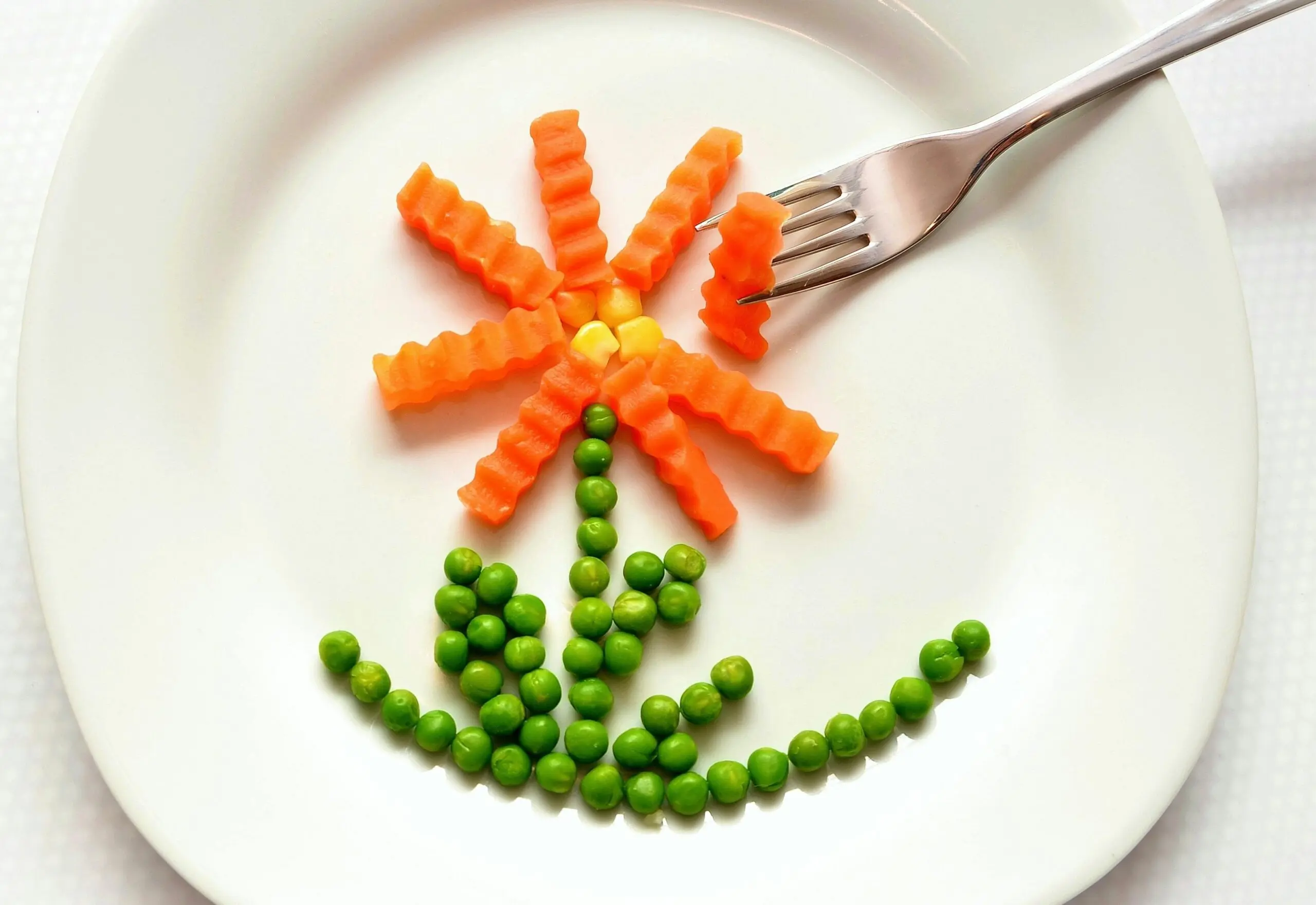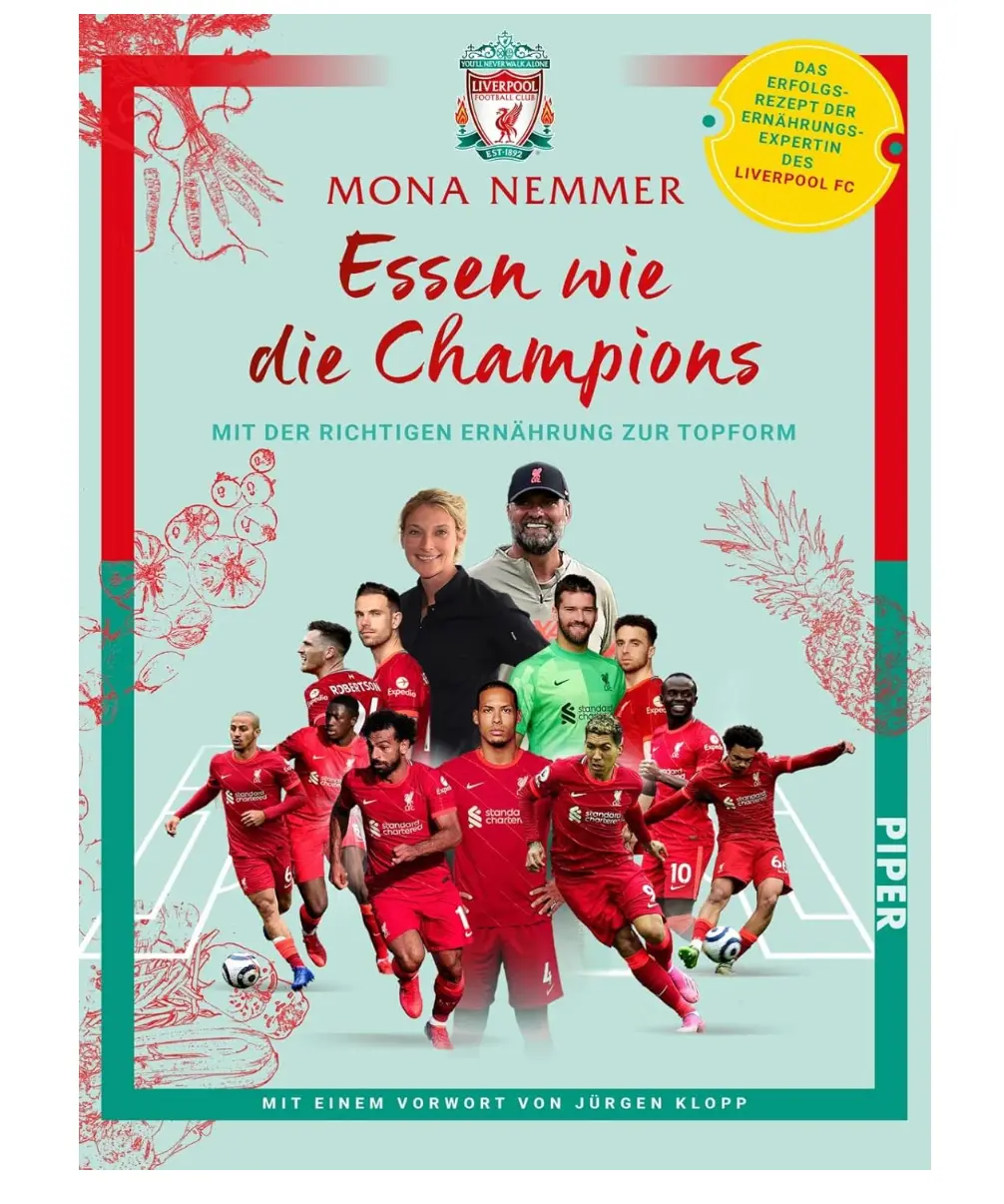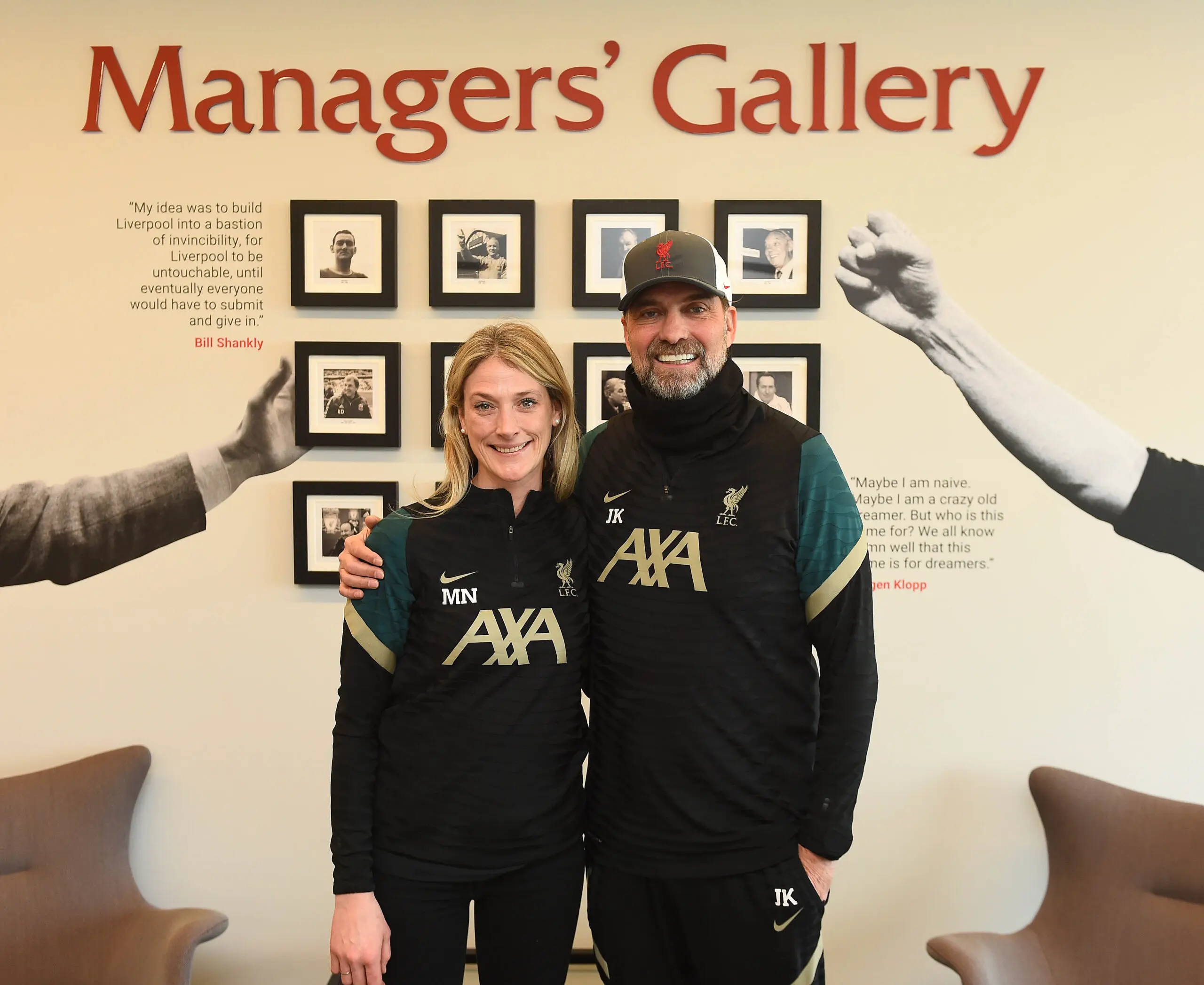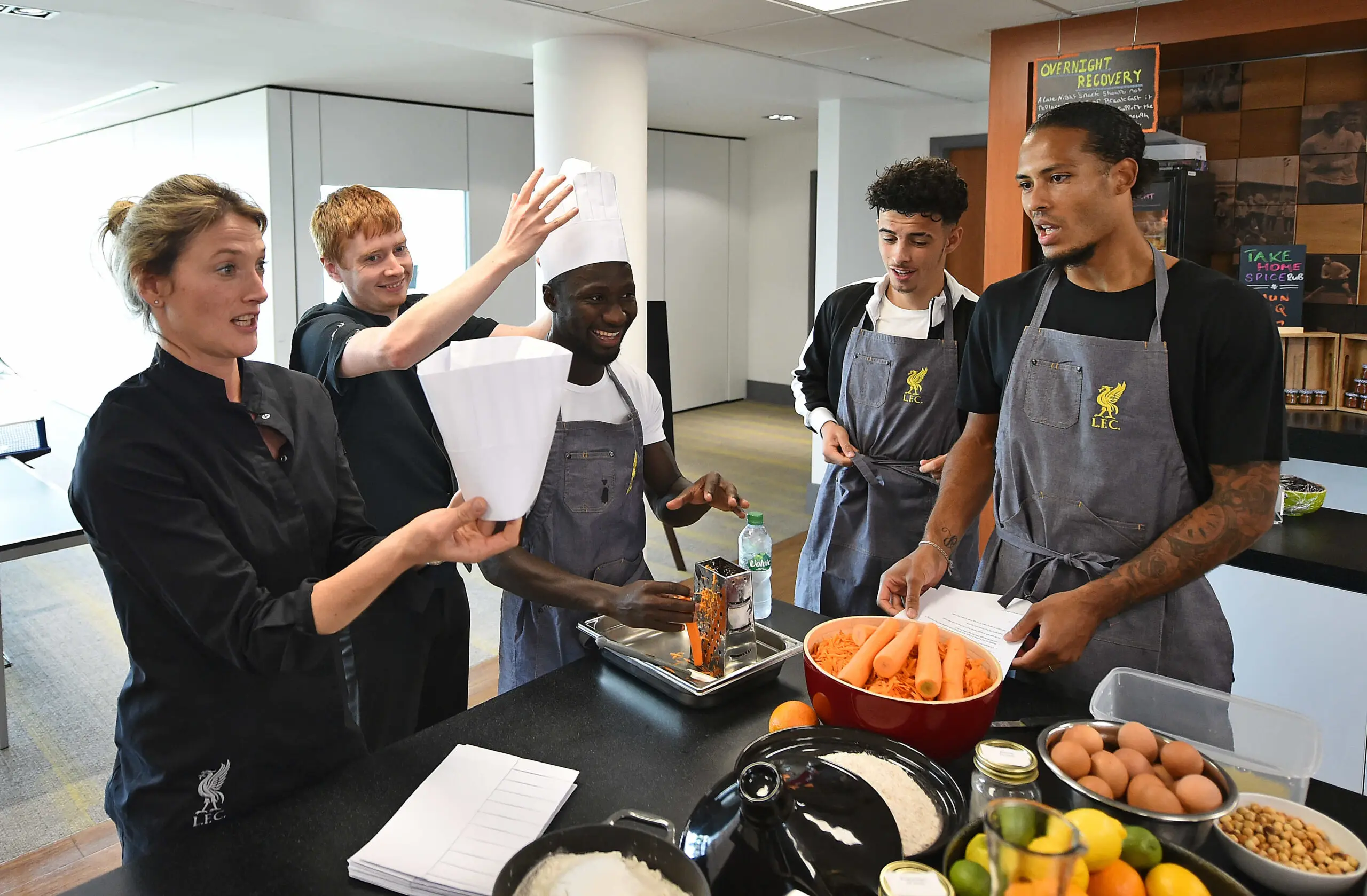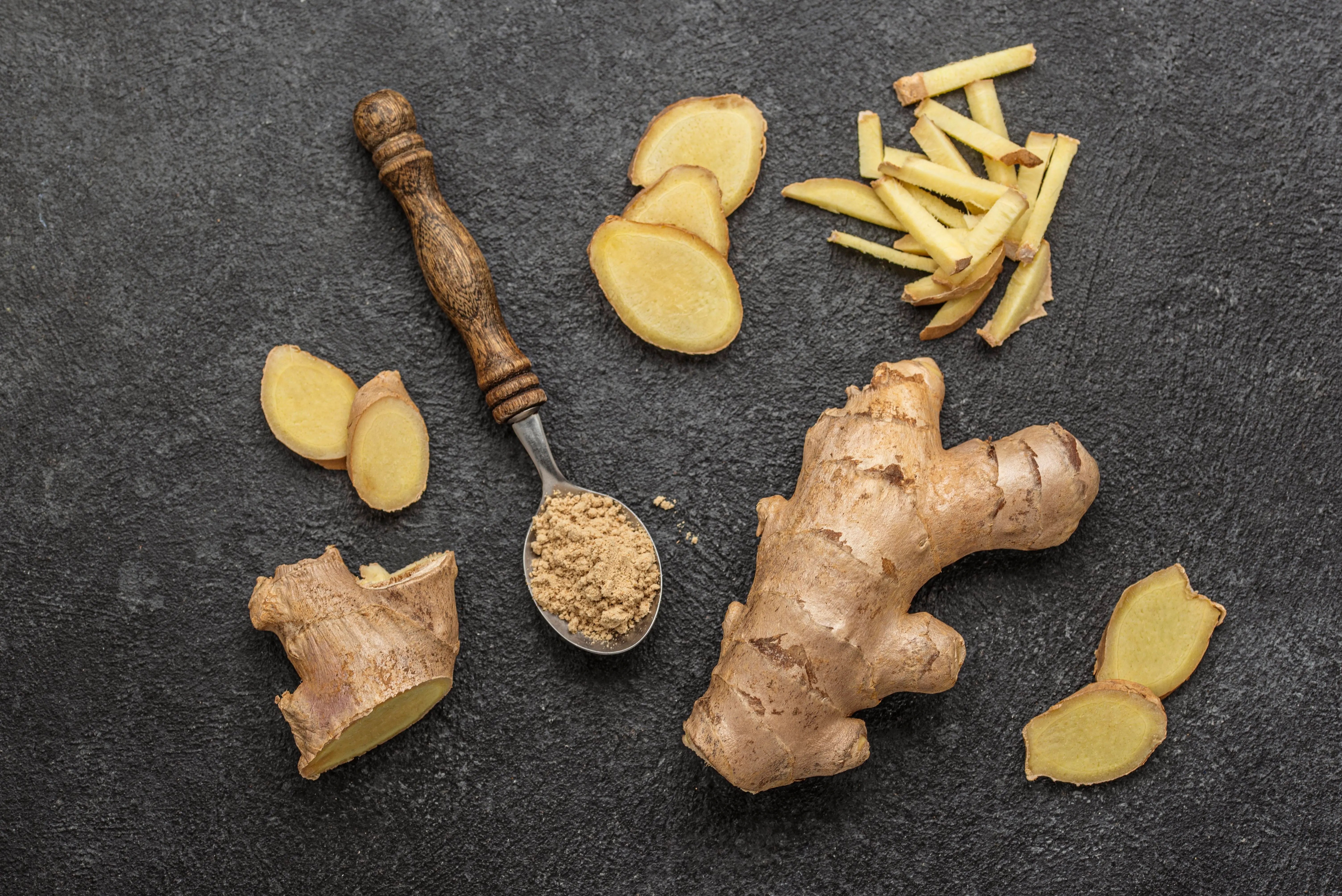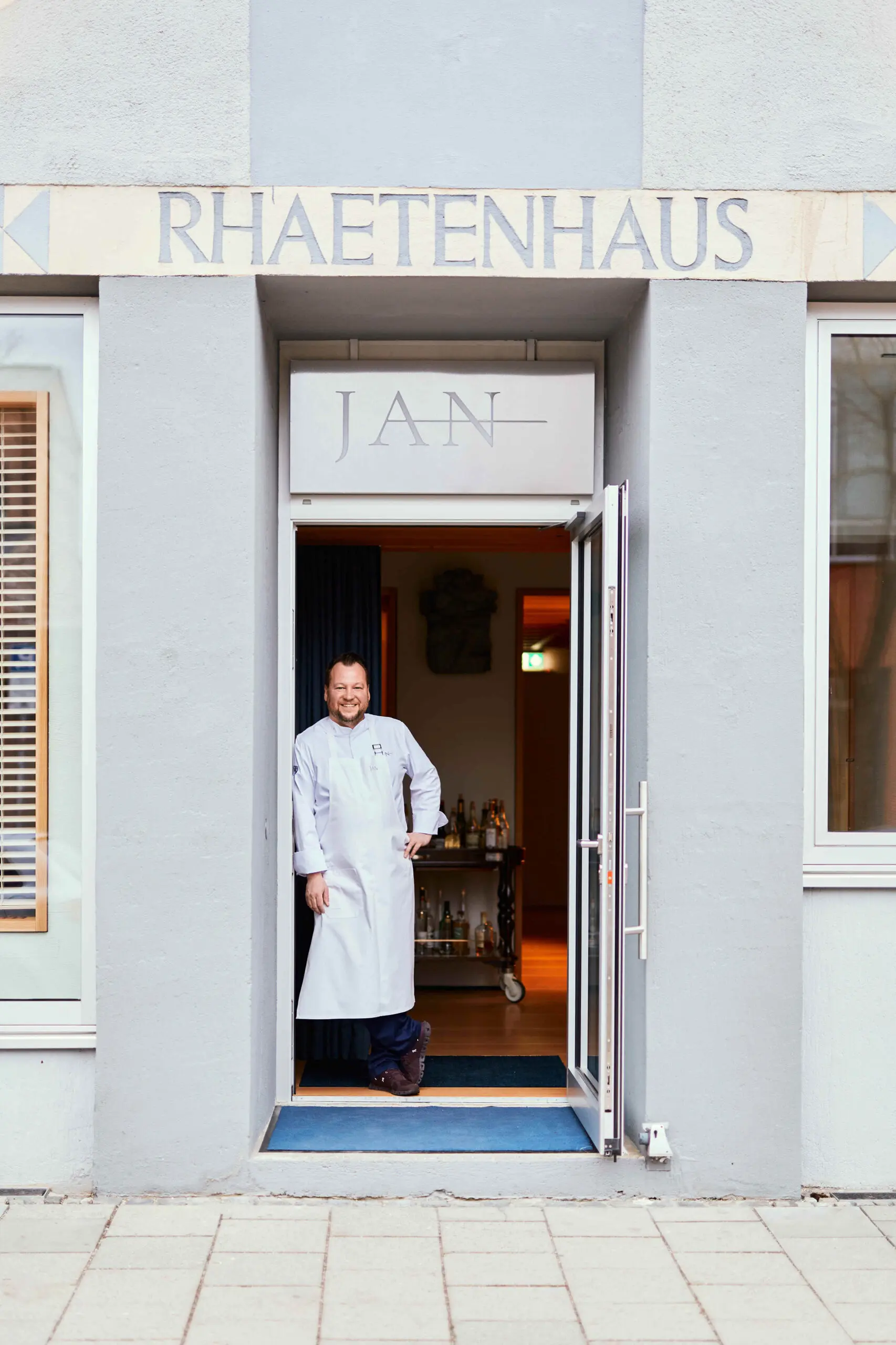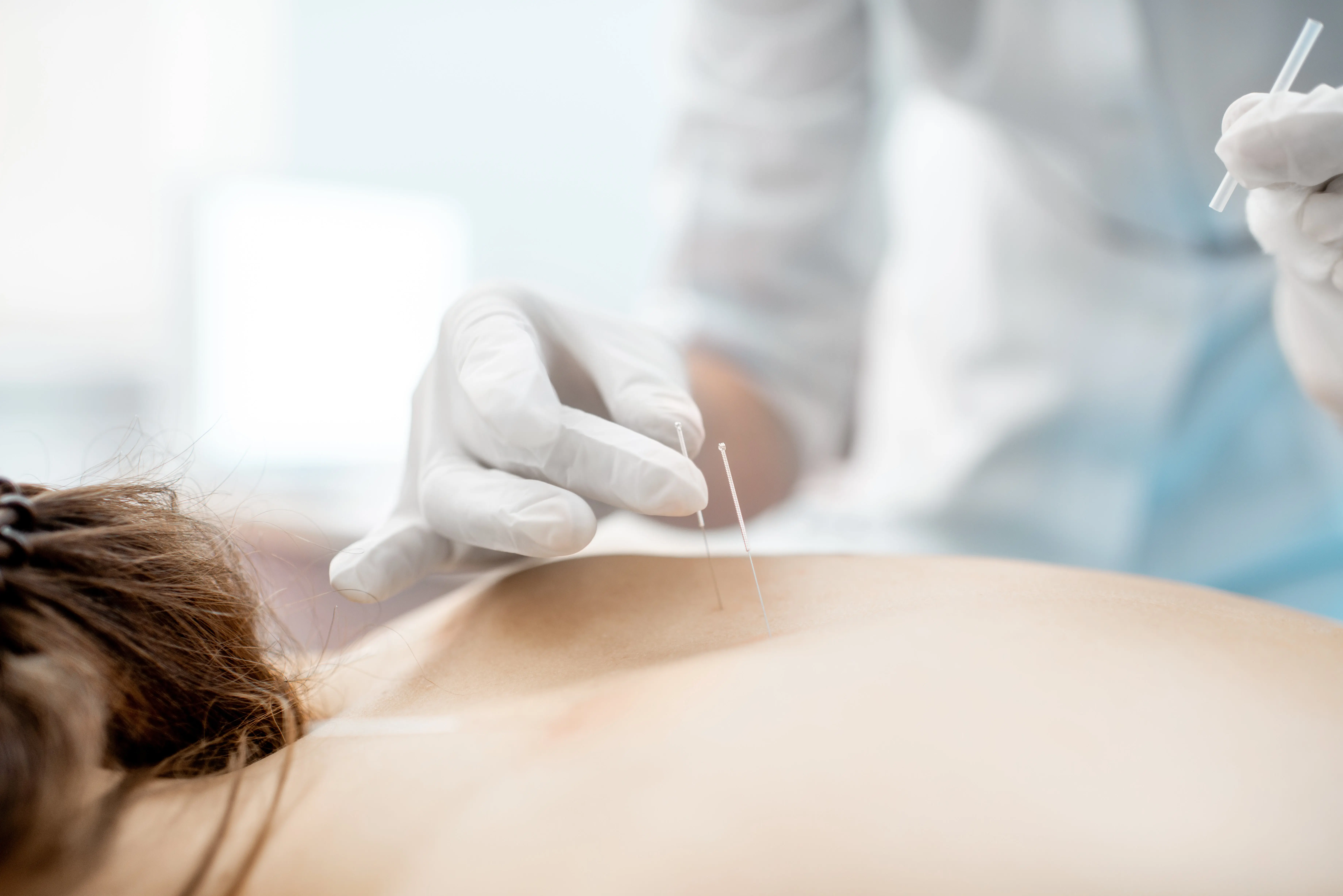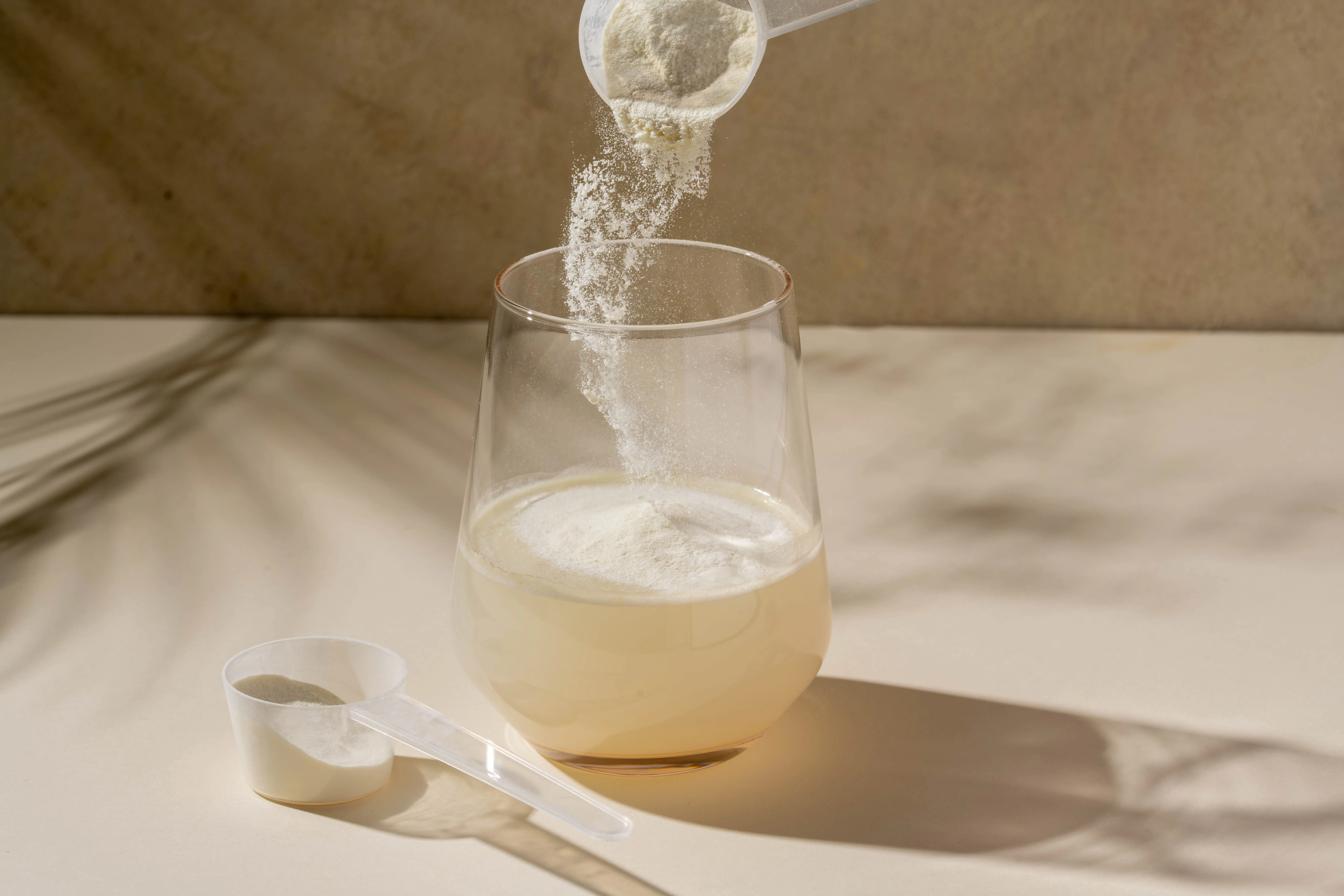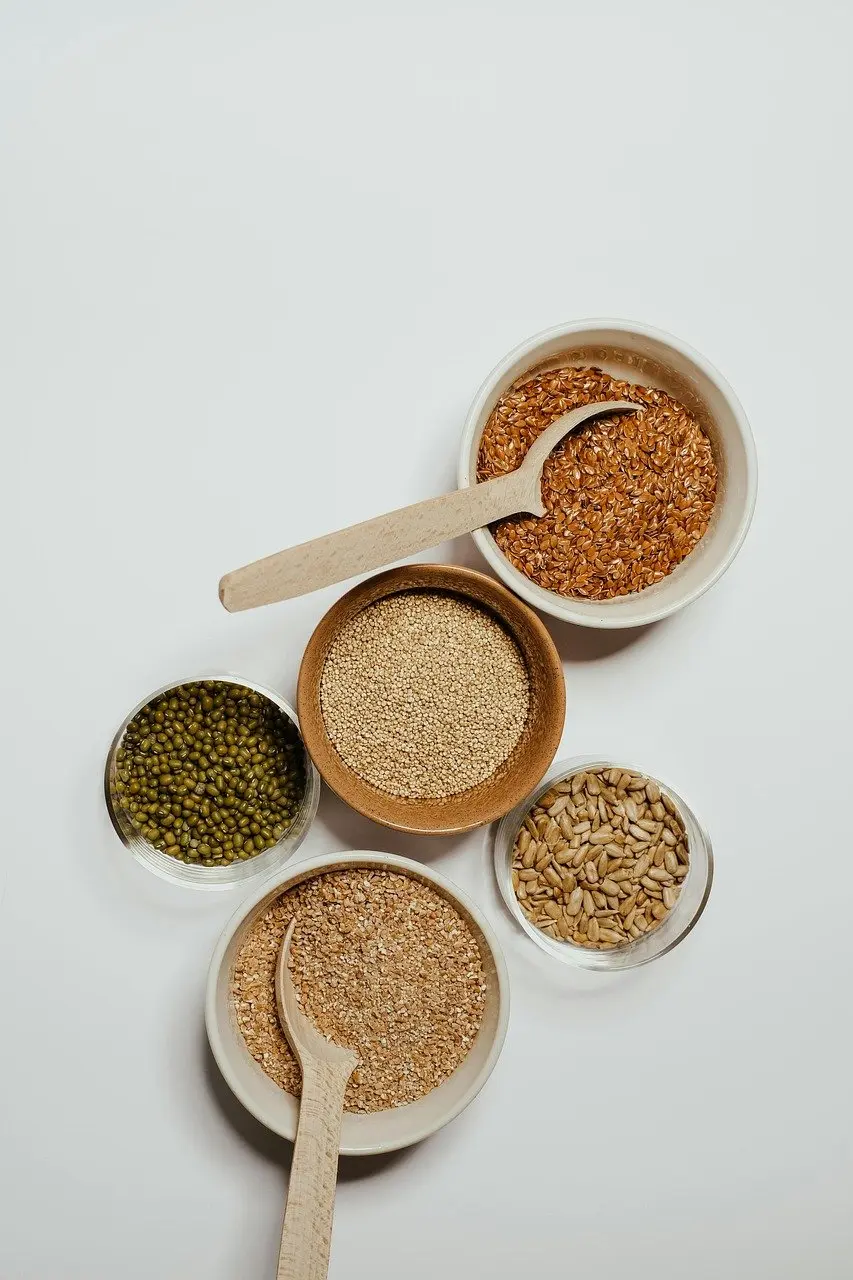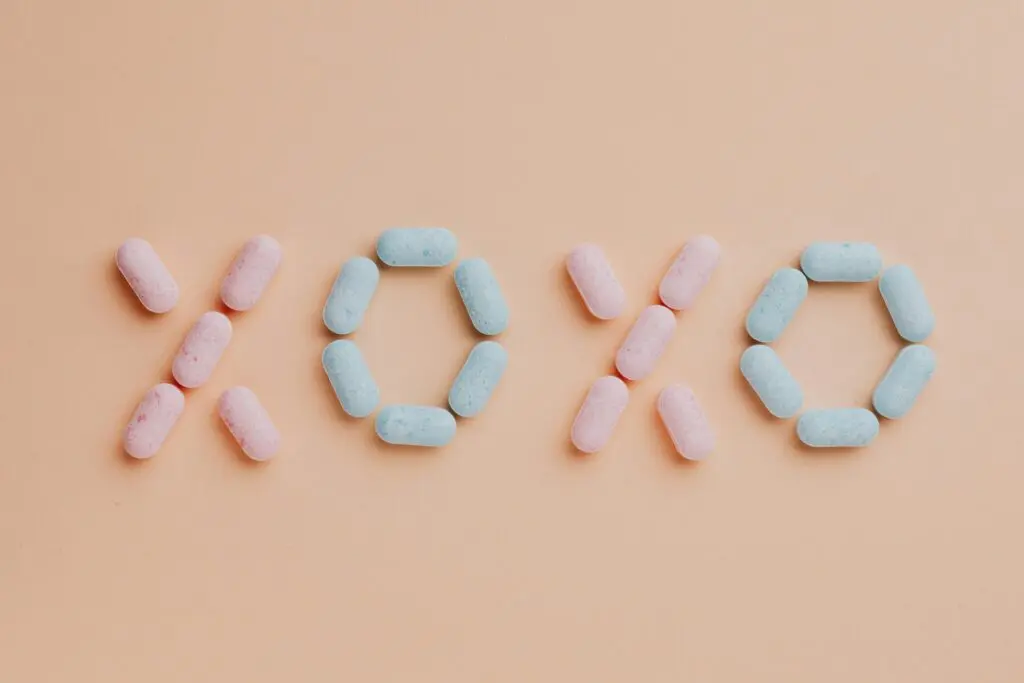How can you improve players who are among the best of their generation? Soccer professionals whose performance data is recorded and analyzed daily, and who have largely adapted their lifestyle to the requirements of top-level sports? Where is there still potential for those few extra points that make the difference between second place and winning titles, cups, and championships?
When Jürgen Klopp thought about these questions, he made a decision that he later called the "best transfer of his life." He brought Mona Nemmer to FC Liverpool - that was eight years ago. Nemmer had previously worked for FC Bayern and the DFB; she is a nutritionist and holds the title "Head of Nutrition" in Klopp's team.
Jürgen Klopp brought Mona Nemmer to FC Liverpool
The trained nutritionist and trained cook developed a nutrition plan for the club, which follows only the question of how to optimize athletic performance through proper Nutrition When she came, two cooks and two women who served the food were taking care of the players' meals. On Mondays there was chicken, on Tuesdays Fish, Wednesday chicken again. Two cooks, two dishes, that was it.
Jürgen Klopp called Mona Nemmer the best signing of his life
By now, her team consists of 26 employees, providing not only the professionals but all teams down to the nine-year-olds with daily meals, but above all with valuable knowledge about what benefits the body and what harms it. To this end, Nemmer also had a 1200 square meter garden built, where potatoes, tomatoes, cucumbers, broccoli, and fruit are grown.
The youth teams help with watering and weeding, learning early on what fruits, vegetables, and herbs can do for them. With the successes of the “Reds” – Champions League, Club World Cup, UEFA Super Cup – Nemmer's contribution became known, but she never gave interviews. She preferred to focus on her work rather than talking about it.
Mona Nemmer also wrote a book about her work
After eight years in Liverpool, the 40-year-old gave insight into her work with the book “Eating Like the Champions” (Piper Verlag). It is not about diet cuisine, or quick recipes or vegan feel-good dishes. Here it is about what provides energy, prevents injuries, and speeds up recovery. The technical term is "Performance Nutrition," and meat and fish as a source of protein are not frowned upon, nor are carbohydrates.
It is about what provides energy, prevents injuries, and speeds up recovery.
What makes office people fat and sluggish is the fuel for high-performance athletes. Nemmer's approach is based on a principle that sounds as simple as it is plausible: The right food at the right time.
